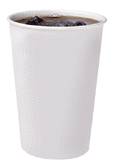
MONDAY, May 24 (HealthDay News) – Even a small reduction per day in sweetened soft drink intake could improve your blood pressure, researchers report.
In an 18-month study, researchers found a measurable reduction in blood pressure — 1.8 points in systolic pressure, the higher of the desired 120/80 desired reading, and 1.1 points in diastolic pressure — when intake was reduced by about a can of sweetened beverage a day, said the report published May 24 in Circulation.
“We found a direct dose-response relationship,” said study leader Dr. Liwei Chen, assistant professor of epidemiology at Louisiana State University Health Science Center School of Public Health. “Individually, it was not a big reduction. But population-wise, reducing total consumption could have a huge impact.”
The improvement was recorded in a group of older people whose starting consumption was already well below the American average intake of 2.3 servings of sweetened beverages per day, Chen noted.
High blood pressure is a major risk factor for heart attack, stroke and other cardiovascular diseases. The American Heart Association has long warned about the possible health dangers of added sugars in products such as soft drinks, most notably in a report issued last year.
“What this new paper does is add strength to an emerging body of evidence linking added sugar, in this case in beverages, and increased blood pressure,” said Rachel K. Johnson, the lead author of the heart association report and a professor of nutrition at the University of Vermont.
The AHA report focused on sugars added to processed foods, not on sugars found in natural foods, such as fruit. It recommended that men limit their intake of added sugars to 150 calories a day, about nine teaspoonfuls, and women to 100 calories, or six teaspoonfuls.
In the new study, the sugar-sweetened beverages included regular soft drinks, fruit drinks, fruit punch and lemonade.
A 12-ounce can of sugar-sweetened soda has 130 calories of sugar, or eight teaspoonfuls, the team noted. American adults average 28 ounces a day of sugar-sweetened beverages, Chen said, with younger people drinking a lot more soda than older folks.
The 810 study participants, whose average age was 50, drank 10.5 ounces a day of sugar-sweetened beverages — just under one serving — on average when the study began.
Their average blood pressure was above the desired 120/80 reading. Some had pre-hypertension readings of between 120/80 and 139/89, and others had obvious hypertension — readings of 140/90 and above, which is of medical concern.
At the end of the study, their daily soft drink consumption fell by an average of about half a serving, and their blood pressure had benefited.
Even when weight loss was factored in, the impact of reduced sugar consumption on blood pressure improvement remained significant.
“They controlled for all kinds of variables and still found an association,” Johnson said.
Sugar-sweetened soft drinks are becoming a matter of political controversy,
with Washington, D.C., and other cities proposing to tax sugary sodas. The American Heart Association has so far taken no stand on that issue.
“I am generally supportive of the concept,” Johnson said. “When you look at the cost of obesity to the health care system, with sugar-sweetened beverages implicated as playing an important role in that epidemic, it could make sense. The revenue could be used to reduce health care costs. Also, if the tax is high enough, it could have the same effect on reducing consumption as tobacco taxes.”
More information
Recommendations on added dietary sugar are offered by the American Heart Association.

